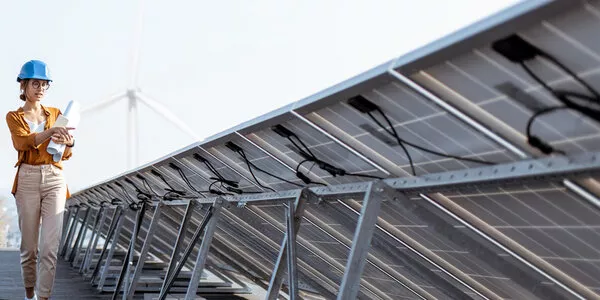
Seizing opportunities in the coveted and evolving Japanese commercial real estate market
Tokyo and Japan’s regional cities are among the most promising markets in Asia and international investors are once again actively seeking to increase their commitments.
After the first COVID-19 outbreak and the great uncertainty it triggered, real estate investors quickly switched their focus to logistics, residential, and some office sectors, where rental income was considered stable. By contrast, very few transactions for retail and hospitality properties were seen in the market, since these were more impacted by the pandemic, particularly hotels. Compared with 2019, the transaction volume markedly decreased in Q2 2020. However, it picked up in the second half and finished the year at JPY 4.1 trillion, almost the same as JPY 4.2 trillion of 20191.
In 2021, the logistics and residential sectors continue to be regarded as essential components of pandemic-proof real estate strategies. The office market is also active, led by some remarkable sale-and-leaseback transactions by corporates reconsidering their office space strategies -- though some price declines may yet materialise over the next few years as vacancy rates start to rise while rents decline. Such declines, however, are projected to be modest given the strong investor appetite and since most office tenants have not made drastic shifts to a work-from-home model – at least not in Japan and not yet.
Compared with 2020, both the retail and hotel sectors are picking up due to domestic corporate disposals intended to strengthen balance sheets, as well as a recovery in domestic travel and consumption since the state of emergency was lifted. Although assets in these sectors have been struggling, they have attracted the attention of investors optimistic about post-pandemic recovery.
There have been multiple announcements regarding data centre developments recently, demonstrating the robust interest in this emerging sector. While investment opportunities in Japan are still rare, there has been a gradual increase in deals involving overseas operators and investors. The presence of such foreign stakeholders in the country may accelerate the growth of the market in the coming years, especially given the potential of cities like Tokyo and Osaka.
ESG is also a key for today’s real estate investment. According to a survey by global real estate service provider CBRE, the proportion of real estate investors who have incorporated ESG criteria into their investment policies is highest in EMEA at 66%, followed by the Americas at 64%, and APAC at 49%2. SG’s clients are largely international investors, many of whom already wrap ESG considerations, including certification, into their asset investment strategies.
Having said that, inbound investment volumes have stalled due this year as most of the available assets have been snapped up by domestic investors. Purchases of Japanese real estate by overseas investors were worth JPY 392.3 billion in H1 2021, a 58% drop from H1 2020, according to JLL (though a JPY 300 billion buyback transaction between Blackstone and Ambang Insurance accounted for almost half of the H1 2020 figure)3. However, with an expected rise in the number of assets to go on sale in the near future and strong appetite among foreign investors, the market outlook is positive for overseas players. As an example, Goldman Sachs announced in May 2021 that it hopes to double its yearly Japanese property allocations to about JPY 250 billion.4 The hostile attempt by Starwood Group seeking to take over INVESCO Office J-REIT earlier this year demonstrates the overall attractiveness of the Japanese commercial real estate market as well.
Today, with more than 77% of Japan’s population5 fully vaccinated as of the end of November 2021, the government has gradually and selectively eased the restrictions around the Covid-19 situation despite the rise of new Covid-19 variants across the globe. Against the backdrop of the current environment, expectations for recovery are rising in both the economy more broadly and the real estate market specifically.
1 Mizuho Realty Co., Ltd https://www.mizuho-re.co.jp/article/trend/report-202103.html
2 CBRE’s 2021 Investor Intentions Survey Cross-border Comparison
https://www.cbre.co.jp/en/research-reports/Japan-ViewPoint---Japanese-Investment-Strategies-in-the-Global-Context-June-2021
3 Financial Times https://www.ft.com/content/fd6b524a-e92e-11e5-888e-2eadd5fbc4a4
4 Nikkei Asia https://asia.nikkei.com/Business/Markets/Property/Goldman-to-double-Japan-property-investments-to-over-2bn-a-year
5 Prime Minister’s Office of Japan https://www.kantei.go.jp/jp/headline/kansensho/vaccine.html

Data centres are taking Asia-Pacific by storm
By Marie Vinnell, Chief Country Officer for Australia and Eugene Tan, Head of Technology, Media and Telecoms for Asia...

Societe Generale wins 10 awards in sustainable finance
Global Finance has announced the winners of its fifth annual Sustainable Finance Awards for 2025 and the selections for...

Connecting East and West for Japan’s energy transition
Societe Generale’s Positive Impact Day in Japan provided an update on Japan’s decarbonisation policy and the role of...

The ESG investment balancing act, an Australian example
There is a fundamental challenge at the heart of sustainable investing: investors are increasingly alert to navigating...



